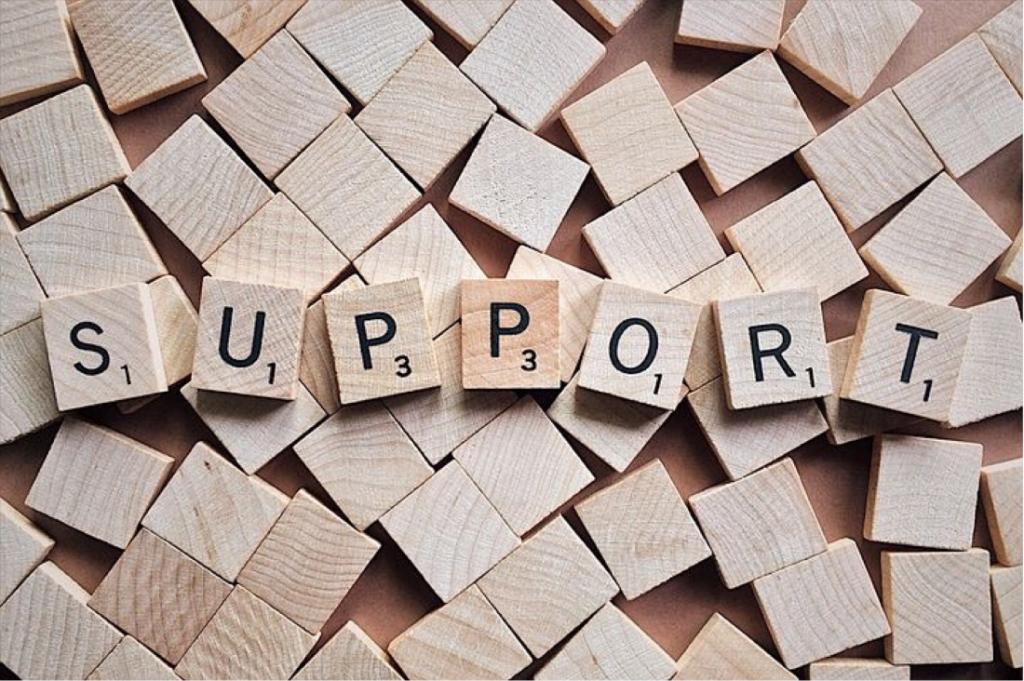Gambling disorder, also known as compulsive gambling, is a type of impulse-control disorder where a person finds it difficult to resist the urge to gamble, even when it leads to negative consequences. Despite being a serious mental health condition, it is often associated with negative stereotypes and misunderstandings, leading many individuals to suffer in silence. This can prevent them from seeking the help they need to overcome the challenge. The purpose of this article is to shed light on gambling disorder, dispelling common stereotypes, and empowering individuals to seek the help they need to reclaim control over their lives. By gaining a deeper understanding of this condition, we can reduce the stigma surrounding gambling disorder and encourage those struggling to seek the support they deserve.
Stereotypes associated with Gambling

The stereotypes associated with gambling disorder often stem from a lack of understanding about the nature of the condition. Some of the common stereotypes include:
- Gambling disorder is a result of a lack of willpower or self-control.
- Gambling disorder only affects people who are weak or have low moral character.
- Gambling disorder is a choice, not a mental health condition.
- Individuals with gambling disorder are just trying to get rich quick.
- Gambling disorder only affects individuals who have a lot of money to gamble with. These stereotypes can be harmful and prevent individuals from seeking the help they need. It’s important to recognize that gambling disorder is a serious mental health condition that can have devastating effects on an individual’s life, and that recovery is possible with the right treatment and support.
The purpose of this blog is to provide a deeper understanding of gambling disorder, to dispel common stereotypes, and to inform individuals on how to seek help. By educating the public on the reality of this condition, we can reduce the stigma surrounding gambling disorder and encourage individuals to seek the help they need to overcome this challenge.

Causes of Gambling
The causes of gambling disorder are complex and can involve a combination of genetic, environmental, and psychological factors. Some of the contributing causes include:
- Genetics: A family history of addiction or impulsivity can increase the risk of developing gambling disorder.
- Brain chemistry: Changes in the levels of certain neurotransmitters, such as dopamine, can impact an individual’s ability to control their urge to gamble.
- Life stressors: Traumatic life events, such as job loss or relationship problems, can trigger the onset of gambling disorder.
- Mental health conditions: Individuals with depression, anxiety, or other mental health conditions may turn to gambling as a way to cope.
- Access to gambling opportunities: The ease of access to gambling opportunities, such as online gambling or 24-hour casinos, can increase the risk of developing gambling disorder.
It’s important to note that gambling disorder is a complex condition and that the exact causes can vary from person to person.

Symptoms of Gambling
Gambling disorder can manifest in a variety of ways, and the symptoms can range from mild to severe. Some common symptoms of gambling disorder include:
- Preoccupation with gambling: An intense focus on gambling, thinking about past experiences, or planning future gambling opportunities.
- Loss of control: Difficulty controlling the urge to gamble, even when it leads to negative consequences.
- Tolerance: The need to gamble with increasing amounts of money in order to experience the same thrill.
- Withdrawal: Irritability, restlessness, or depression when unable to gamble.
- Chasing losses: Continuing to gamble in an attempt to recoup previous losses.
6 Neglecting responsibilities: Neglecting work, family, or other important responsibilities in order to gamble.
- Risking significant relationships or financial stability: Continuing to gamble despite the negative impact it is having on relationships or financial stability.
Impact of Gambling Disorder on the individual and their loved ones
Gambling addiction or compulsive gambling, can have a significant impact on the individual and their loved ones. Some effects include:
- Financial difficulties: Individuals with gambling disorder may experience debt, bankruptcy, and other financial problems due to excessive gambling.
- Relationships: The addiction can lead to strained relationships with friends and family members, as well as divorce and broken families.
- Mental health: People with gambling disorder are at a higher risk of depression, anxiety, and suicide.
- Work problems: Gambling addiction can lead to decreased work performance, job loss, and difficulty finding and maintaining employment.
- Legal problems: Individuals may engage in illegal activities to finance their gambling habit, leading to criminal charges and jail time.
Destigmatizing Gambling Disorder
Destigmatizing gambling disorder involves reducing negative attitudes and beliefs towards the condition, and recognizing it as a treatable medical issue. Some ways to destigmatize gambling disorder are:
- Education: Increasing public education and awareness about gambling disorder, its causes, and the available treatment options can help to reduce stigma.
- Responsible gambling campaigns: Encouraging responsible gambling and promoting the responsible use of gambling products can help to reduce the stigma associated with gambling disorder.
- Medical recognition: Classifying gambling disorder as a recognized medical condition by relevant professional organizations can help to destigmatize the condition and encourage individuals to seek help.
- Media representation: Encouraging accurate and sensitive media representation of gambling disorder can help to destigmatize the condition and reduce harmful stereotypes.
- Support groups: Providing support groups for individuals with gambling disorder can help to reduce the stigma associated with the condition and provide a supportive environment for those seeking help.
Overall, destigmatizing gambling disorder requires a collective effort from various stakeholders, including health professionals, media, government, and the community.

Common Misconceptions about Gambling Disorder
There are several common misconceptions about gambling disorder that can contribute to its stigma and prevent individuals from seeking help. Some of these misconceptions are:
- It’s not a real addiction: Gambling disorder is a recognized addiction and is included in the DSM-5 as a behavioral addiction.
- Only affects certain groups: Gambling disorder can affect individuals from all walks of life and does not discriminate based on age, race, or socio-economic status.
- It’s easy to quit: Gambling disorder is a chronic condition that often requires professional help and ongoing support.
- Only affects people who gamble frequently: Gambling disorder can develop in individuals who gamble infrequently, and the frequency of gambling is not a predictor of the severity of the addiction.
- It’s not serious: Gambling disorder can have serious consequences for the individual and their loved ones, including financial difficulties, strained relationships, and mental health problems.
Correcting these misconceptions and understanding the true nature of gambling disorder can help to reduce its stigma and encourage individuals to seek help.
Importance of seeking help

Gambling disorder is a treatable condition, but seeking help is crucial for recovery. The importance of seeking help for gambling disorder includes:
- Addressing the root causes: Gambling disorder often has underlying psychological and emotional issues that need to be addressed in order to overcome the addiction.
- Preventing serious consequences: Gambling disorder can have serious consequences, including financial difficulties, strained relationships, and mental health problems. Seeking help can prevent these consequences and promote overall well-being.
- Improving quality of life: Overcoming gambling disorder can improve an individual’s quality of life and help them to regain control over their finances and relationships.
Resources available for those struggling with gambling disorder:

There are many resources available for individuals struggling with gambling disorder, including:
- Rehabilitation centers: Specialized rehabilitation centers offer comprehensive treatment for gambling disorder and provide a supportive environment for recovery.
- Mental health professionals: Psychologists, therapists, and counselors can provide individual or group therapy for gambling disorder.
- Support groups: Support groups such as Gamblers Anonymous can provide a supportive community for individuals with gambling disorder.
4 Online resources: There are numerous online resources available for individuals with gambling disorder, including support groups, educational materials, and tools for tracking progress.
How to find the right treatment options
Finding the right treatment options for gambling disorder can be challenging, but there are several steps that individuals can take to find the best options for their needs:
- Consult a mental health professional: A mental health professional can assess the individual’s needs and recommend appropriate treatment options.
- Consider the type of treatment: There are several types of treatment available for gambling disorder, including individual therapy, group therapy, and rehabilitation programs.
- Look for specialized treatment programs: Specialized treatment programs for gambling disorder are available and may offer more tailored and effective treatment options.
- Consider the location and cost of treatment: The location and cost of treatment can be important factors to consider when choosing the right treatment options.
Understanding the journey to recovery

Recovering from gambling disorder can be a long and challenging process, but with the right support and resources, it is possible to overcome the addiction and regain control over one’s life.
- Acknowledging the problem: The first step in recovering from gambling disorder is acknowledging the problem and recognizing it as a treatable medical condition.
- Making lifestyle changes: Making positive lifestyle changes, such as improving physical and mental health, can help to support recovery and prevent relapse.
- Coping with setbacks: The journey to recovery from gambling disorder can be unpredictable and there may be setbacks along the way. It’s important to have coping strategies in place to manage these challenges.
- Avoid triggers: Identifying and avoiding triggers that can lead to gambling can help to manage the addiction.
- Practice self-care: Engaging in self-care activities, such as exercise, meditation, and spending time with loved ones, can help to manage stress and improve overall well-being.
- Stay engaged in recovery: Staying engaged in recovery activities, such as therapy, support groups, and lifestyle changes, can help to prevent relapse and promote long-term recovery.
In conclusion, gambling disorder is a serious but treatable medical condition that can have serious consequences for individuals and their loved ones. It is important to understand the reality of gambling disorder, break the stereotypes associated with it, and seek help when needed. The journey to recovery can be challenging, but with the right support and resources, it is possible to overcome the addiction and regain control over one’s life.
It’s also important to remember that recovery is a process and setbacks are normal. The most important thing is to remain committed to the journey, seek support when needed, and stay engaged in recovery activities. With the right support and resources, individuals can successfully recover from gambling disorder and improve their overall well-being.


























Recent Comments